
Durres: The Timeless Port City of Albania
Durres, Albania's second-largest city, is a vibrant coastal destination that beautifully blends ancient history with modern charm. Nestled along the Adriatic Sea, it boasts a rich history dating back to 627 BC. As you stroll through the city, you'll find remnants of its storied past, from Roman amphitheaters to Byzantine walls. Durres is home to one of the largest Roman amphitheaters in the Balkans, which can hold up to 20,000 spectators. This ancient structure offers a glimpse into the city’s dynamic past and is a must-visit for history buffs. Nearby, the Archaeological Museum houses an impressive collection of artifacts that trace the region's diverse cultural influences. The city's vibrant promenade, filled with cafes, restaurants, and shops, provides a perfect setting for leisurely walks and people-watching. The sandy beaches of Durres are ideal for sunbathing and swimming, making it a popular destination for both locals and tourists. The warm Mediterranean climate ensures pleasant weather year-round. Durres is also a gateway to exploring more of Albania. From here, you can easily access the capital city, Tirana, or take a ferry to Italy. Whether you're interested in history, culture, or simply relaxing by the sea, Durres offers a unique and memorable experience.
Local tips in Durres
- Visit the Roman Amphitheater early in the morning to avoid crowds and enjoy the site in peace.
- Try local seafood dishes at the restaurants along the promenade for a true taste of Durres.
- Bring comfortable walking shoes to explore the city's historic sites and coastal pathways.
- If visiting in summer, book accommodations in advance as the city gets busy with tourists.
- Look out for local festivals and events, especially during the summer months, to experience the city's vibrant culture.
Durres: The Timeless Port City of Albania
Durres, Albania's second-largest city, is a vibrant coastal destination that beautifully blends ancient history with modern charm. Nestled along the Adriatic Sea, it boasts a rich history dating back to 627 BC. As you stroll through the city, you'll find remnants of its storied past, from Roman amphitheaters to Byzantine walls. Durres is home to one of the largest Roman amphitheaters in the Balkans, which can hold up to 20,000 spectators. This ancient structure offers a glimpse into the city’s dynamic past and is a must-visit for history buffs. Nearby, the Archaeological Museum houses an impressive collection of artifacts that trace the region's diverse cultural influences. The city's vibrant promenade, filled with cafes, restaurants, and shops, provides a perfect setting for leisurely walks and people-watching. The sandy beaches of Durres are ideal for sunbathing and swimming, making it a popular destination for both locals and tourists. The warm Mediterranean climate ensures pleasant weather year-round. Durres is also a gateway to exploring more of Albania. From here, you can easily access the capital city, Tirana, or take a ferry to Italy. Whether you're interested in history, culture, or simply relaxing by the sea, Durres offers a unique and memorable experience.
When is the best time to go to Durres?
Iconic landmarks you can’t miss
Durrës Amphitheatre
Explore the ancient Roman Amphitheatre of Durrës, the largest in the Balkans, and discover its rich history and stunning mosaics.
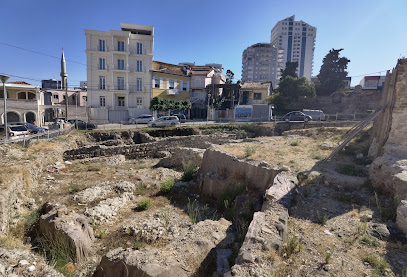
Venetian Tower of Durrës
Explore the Venetian Tower in Durrës, a historic sentinel offering panoramic views and a glimpse into Albania's rich past.
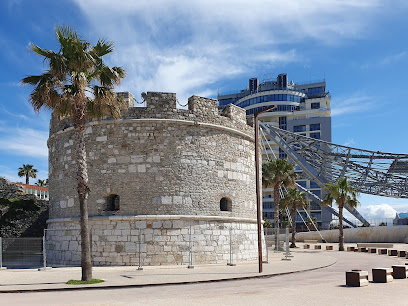
Sfinksi
Experience the charm of Durrës at Sfinksi: stunning sunsets, local culture, and seaside relaxation on the Adriatic coast.
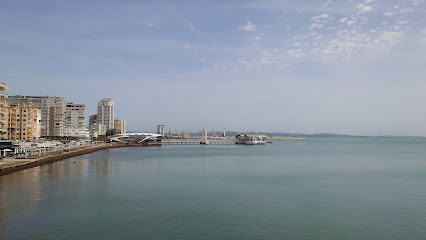
Muzeu Kombëtar Arkeologjik
Discover Albania's ancient history at Durrës Archaeological Museum, showcasing Greek, Hellenistic, and Roman artifacts near the coast.
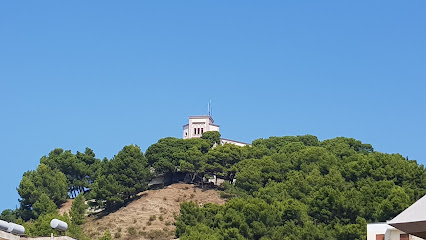
The Great Mosque of Durrës
Discover the Great Mosque of Durrës, a beacon of Albanian Islamic heritage, blending history and architectural beauty in the heart of the city.
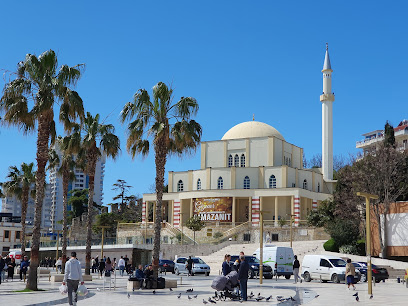
Muzeu i Dëshmorëve dhe Salla e Relikeve të Luftës
A solemn memorial in Durrës honoring Albania's martyrs and showcasing relics of their heroic struggles and sacrifices.
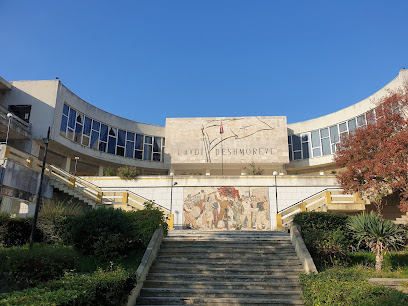
Town Square of Durrës - Sheshi Liria
Experience the vibrant heart of Durrës at Sheshi Liria, a lively square where history, culture, and community converge in Albania's coastal city.
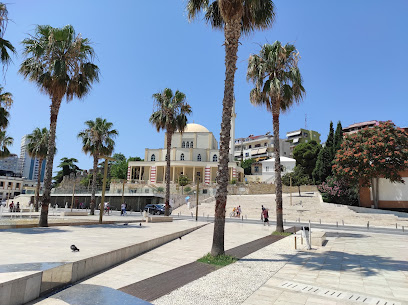
Porto Romano
Explore ancient Roman ruins and coastal beauty at Porto Romano, a historical gem near Durrës, Albania.
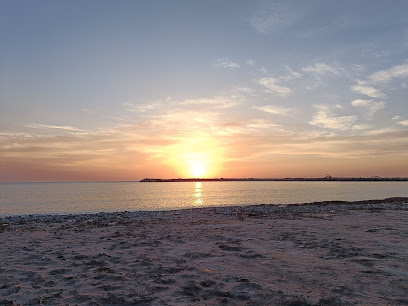
Rrota e Kuqe, Durrës
Discover the historical allure of Rrota e Kuqe, a captivating landmark in Durrës, Albania, reflecting the region's rich heritage and vibrant culture.
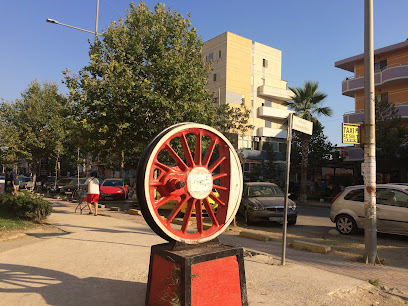
Durrës Beach
Experience the vibrant energy of Albania's most popular beach, offering sun, sand, and a taste of history on the Adriatic coast.
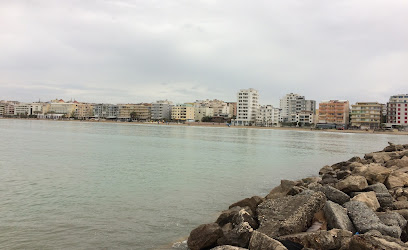
Byzantine Forum (Durrës)
Explore the ruins of Durrës' Byzantine Forum, a historical marketplace and civic center dating back to the 6th century.

Concrete Bunkers
Explore Albania's Cold War legacy at the Concrete Bunkers in Durrës, a unique historical landmark on the Adriatic coast.
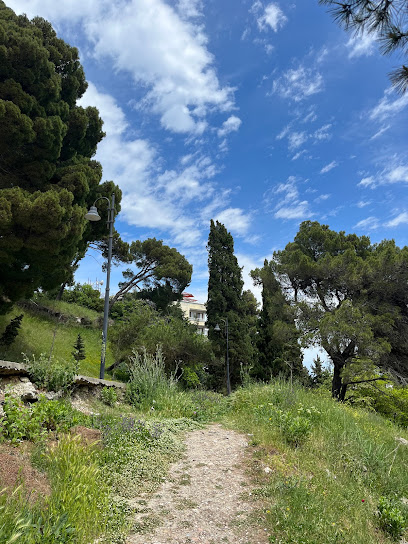
Column monument
Discover the Column Monument in Durrës: a symbol of history, culture, and resilience set against the backdrop of Albania's Adriatic coast.
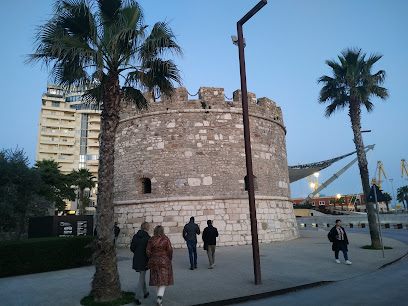
The southern gate of the Castle (Porta jugore e Kalasë)
Explore the historic Southern Gate of Durrës Castle, a Byzantine-era marvel with stunning views of the Adriatic coast and the city of Durrës.
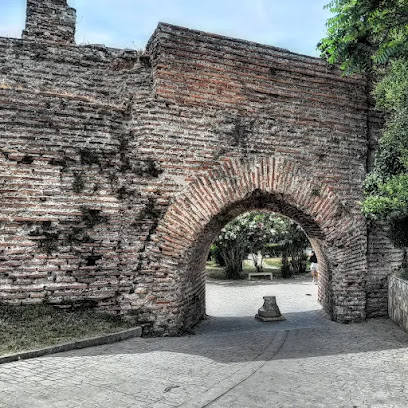
Lighthouse
Explore the Durrës Lighthouse: A historic beacon offering stunning Adriatic views and a glimpse into Albania's maritime heritage.
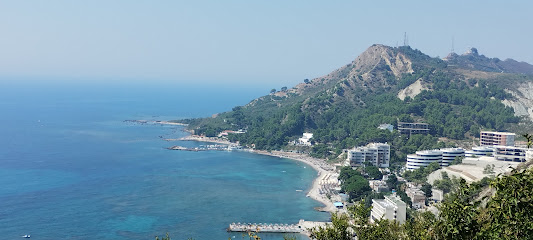
Unmissable attractions to see
Skanderbeg Square
Discover Skanderbeg Square in Tirana: a vibrant hub of Albanian history, culture, and modern life, surrounded by iconic landmarks and attractions.
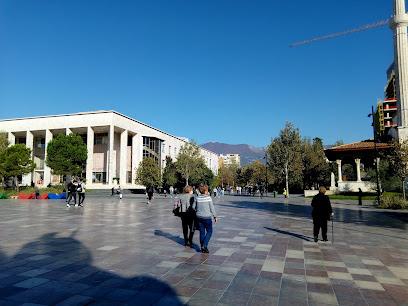
Castle of Kruja
Explore Kruja Castle, a symbol of Albanian resistance and a treasure trove of history, culture, and breathtaking views in the heart of Krujë.
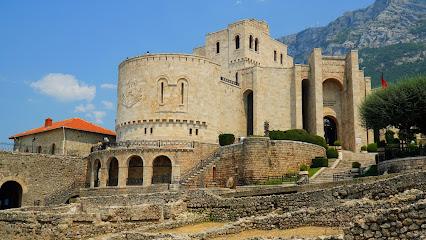
Bunk'Art 2
Explore Albania's secretive past in a Cold War bunker turned museum, revealing the chilling history of communism and political persecution.
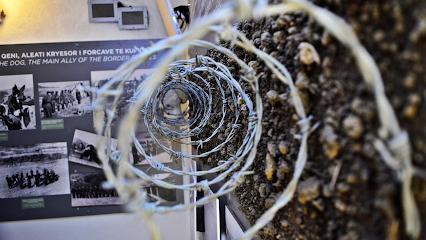
Tirana Park
Escape the city buzz in Tirana's largest green space, offering recreation, history, and natural beauty for everyone.
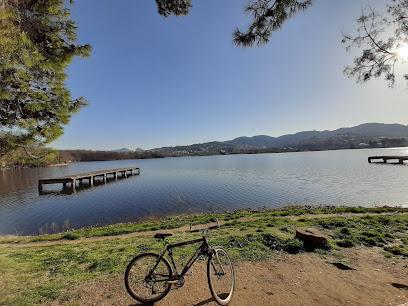
Durrës Amphitheatre
Explore the Durrës Amphitheatre, a majestic relic of Roman architecture, where history comes alive in Albania's cultural heart.

Pyramid of Tirana
Explore Tirana's iconic Pyramid: From communist symbol to vibrant tech hub, offering panoramic views and a glimpse into Albania's past and future.
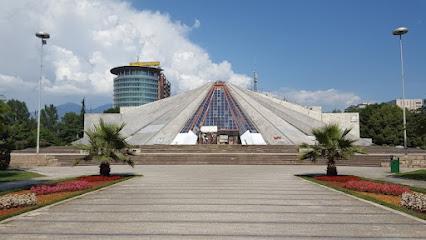
Rinia Park
Escape to Tirana's Rinia Park: A revitalized green oasis in the city center, offering relaxation, recreation, and cultural experiences.
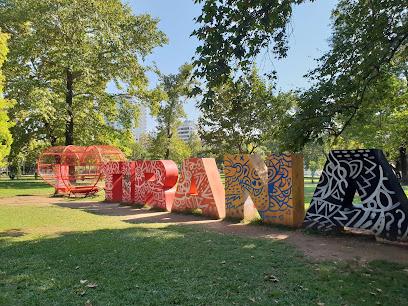
BUNK'ART 1
Explore a former nuclear bunker transformed into a museum, offering a glimpse into Albania's communist past and the Cold War era.
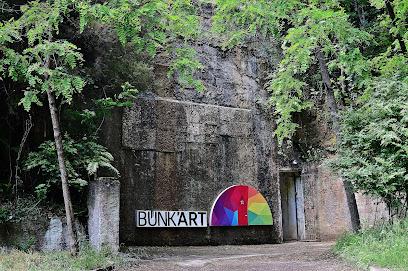
Et'hem Bej Mosque
Discover Tirana's historic Et'hem Bey Mosque, a symbol of religious freedom with unique Ottoman-era frescoes and architecture.

National Historical Museum
Explore Albania's rich past at the National Historical Museum in Tirana, showcasing artifacts from ancient times to the modern era.
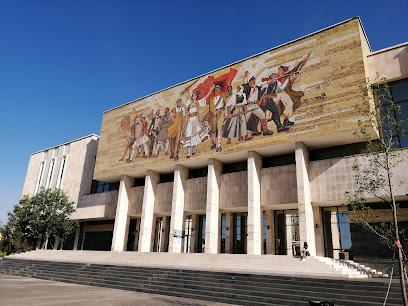
Venetian Tower of Durrës
Explore Durrës' Venetian Tower: a historic sentinel offering panoramic views and a glimpse into Albania's rich coastal past.
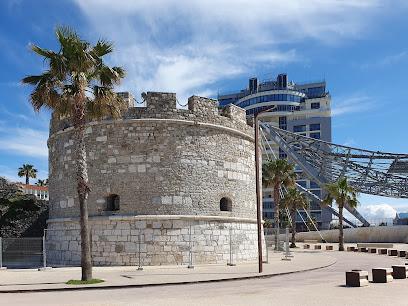
House of Leaves Museum
Explore the House of Leaves Museum in Tirana, a captivating journey into Albania's secretive past of surveillance and resilience.
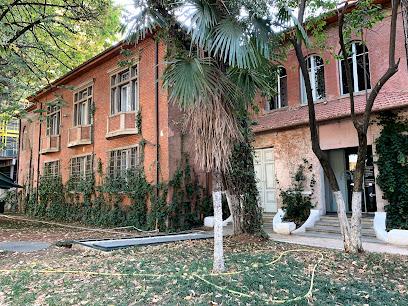
Gjergj Kastrioti National Museum (Skanderbeg)
Explore the rich history of Albania at the Gjergj Kastrioti National Museum, located in the majestic Kruja Castle, a tribute to the national hero Skanderbeg.
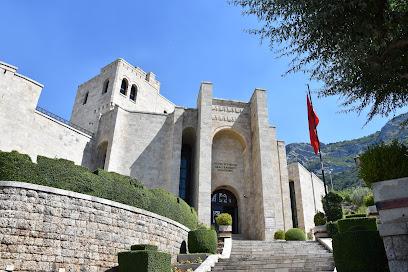
Tanners' Bridge
Step back in time on Tirana's iconic 18th-century Ottoman bridge, a pedestrian haven connecting the city's vibrant past with its present.
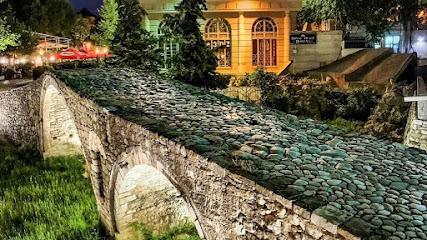
Sfinksi
Discover Sfinksi in Durrës: A modern landmark offering stunning Adriatic views and a vibrant coastal experience.
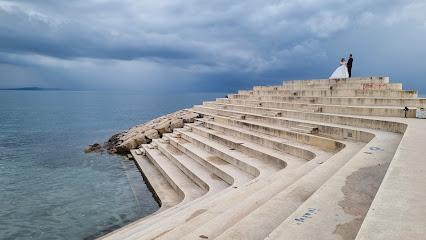
Essential places to dine
4 Stinët
Experience the best pizza in Durrës at 4 Stinët – where tradition meets taste in every bite!
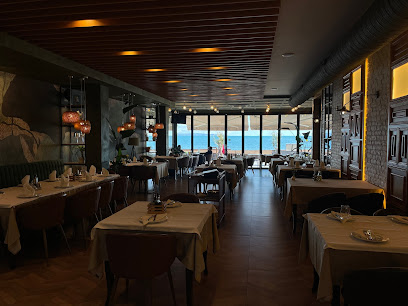
Bar-Restorant Spiranca
Experience authentic Albanian cuisine at Bar-Restorant Spiranca in Durrës—fresh seafood and traditional dishes await by the Adriatic coast.
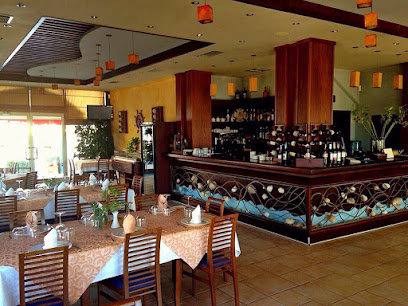
Gusto di Mare & Sushi Time
Discover exquisite seafood and sushi at Gusto di Mare & Sushi Time in Durrës – a culinary gem celebrating Albania's coastal flavors.
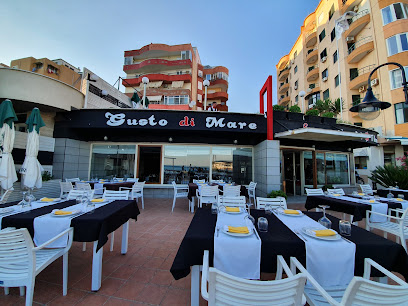
Spaghetteria Luli
Discover authentic Italian flavors at Spaghetteria Luli in Durrës - where every meal is a celebration of taste and tradition.
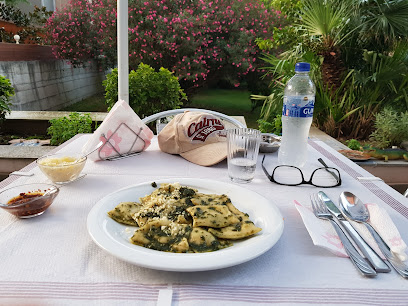
Mema House
Experience authentic Albanian cuisine at Mema House in Durrës, where fresh ingredients meet traditional flavors in a cozy setting.
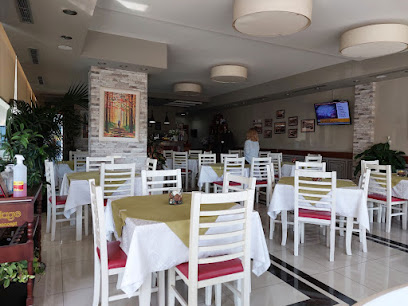
SEMA
Discover SEMA in Durrës: A delightful restaurant offering diverse cuisine including pizza, desserts, and refreshing cocktails in a vibrant setting.
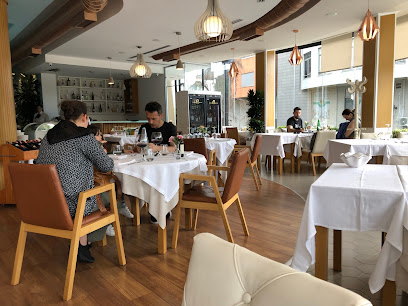
Meison Bistro
Discover the flavors of Albania at Meison Bistro in Durrës – where traditional meets contemporary in a delightful dining experience.
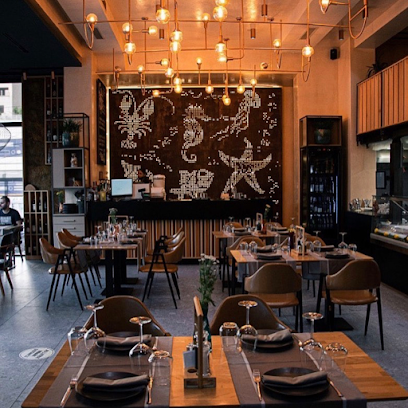
Resto Cafe Hotel Heming-way
Experience the best of Albanian cuisine with a touch of international flair at Resto Cafe Hotel Heming-way in Durrës.
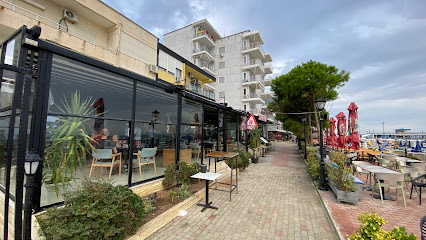
Pista e Vogël Iliria
Experience authentic Albanian cuisine at Pista e Vogël Iliria in Durrës – where every dish tells a story.
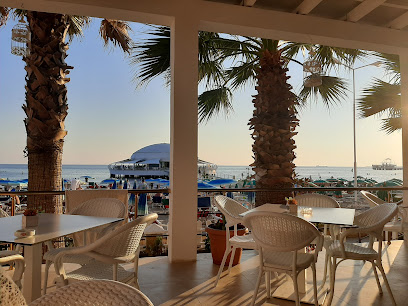
Wild West
Discover authentic Mexican cuisine at Wild West in Durrës - vibrant flavors and festive ambiance await!
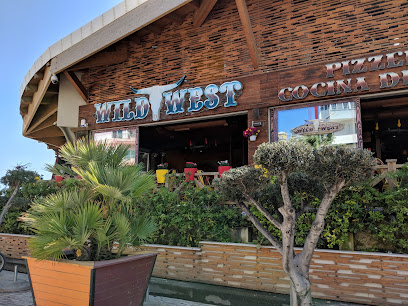
Rooftop XV
Experience exquisite cuisine and breathtaking views at Rooftop XV in Durrës—an unforgettable culinary journey awaits.
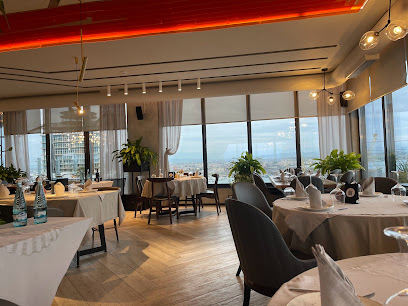
Artur Restaurant
Experience authentic Albanian cuisine at Artur Restaurant in Durrës - where fresh ingredients meet artistic culinary creations.
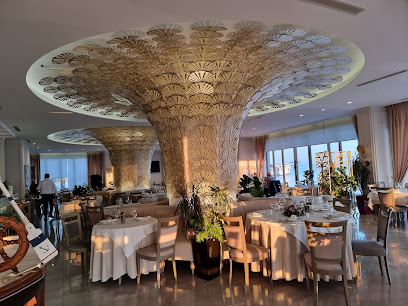
Restorant Piazza
Experience authentic Albanian cuisine at Restorant Piazza in Durrës - where every meal is a celebration of flavor and hospitality.
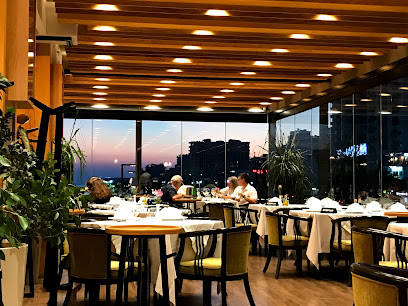
Traditional Restaurant Iri
Experience the flavors of Albania at Traditional Restaurant Iri in Durrës - where authentic cuisine meets warm hospitality.
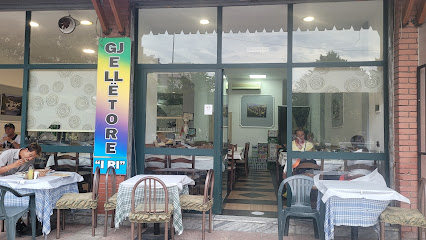
Restorant Rifat Peshkatari
Experience authentic Albanian cuisine at Restorant Rifat Peshkatari in Durres – where fresh seafood meets local flavors in a welcoming setting.
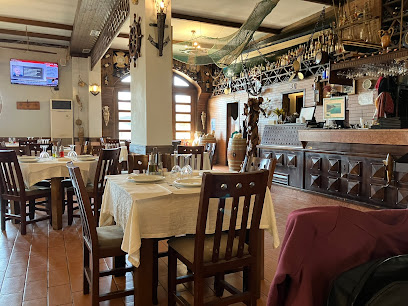
Markets, malls and hidden boutiques
Qendra Tregtare Blue Star
Experience shopping and local culture at Durrës' vibrant Qendra Tregtare Blue Star, where modernity meets tradition in a premier shopping destination.
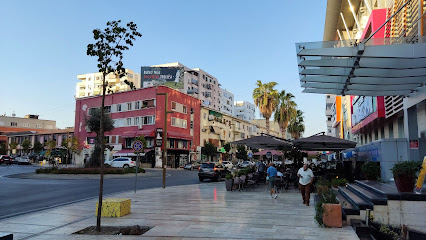
Jumbo Durrës
Explore Jumbo Durrës - your ultimate shopping destination in Albania's vibrant coastal city, combining convenience and variety for all your needs.
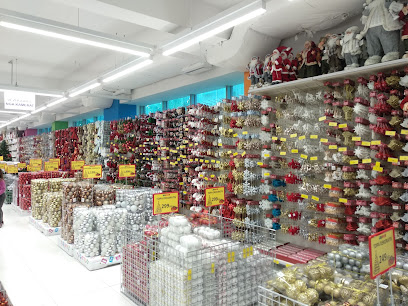
Plusito Pet Shop Durres
Explore Plusito Pet Shop in Durres, Albania, where pet care meets passion and quality products await for your beloved companions.
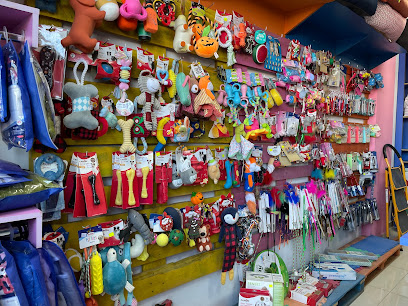
Flagship Center
Explore shopping, dining, and leisure at the Flagship Center, a modern mall in Durrës, Albania, blending local charm with international brands.
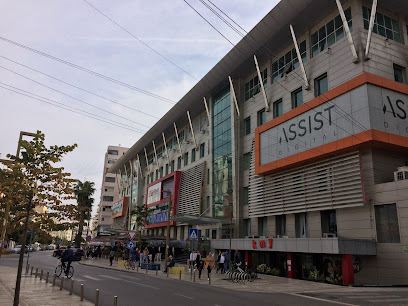
Bloom Shop Durres
Explore Bloom Shop Durres for exquisite souvenirs, stylish handbags, and handcrafted jewelry in the heart of Durrës, Albania.
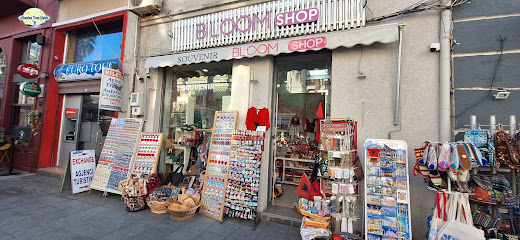
Marvel fashion Durrës
Explore trendy fashion at Marvel Fashion Durrës, the ultimate clothing store for stylish finds in the heart of Albania's vibrant coastal city.
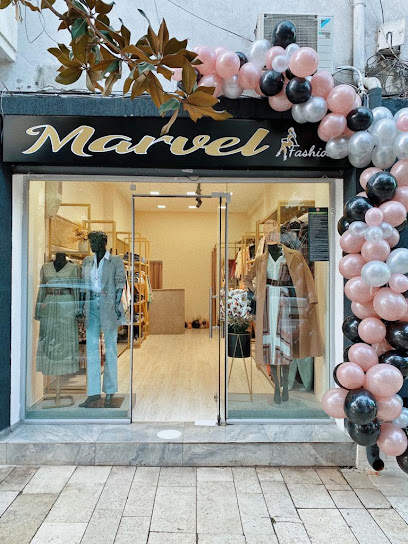
Jeans_shop_dr
Explore the latest trends at Jeans Shop Dr in Durrës, Albania – your go-to destination for stylish jeans and fashion essentials.
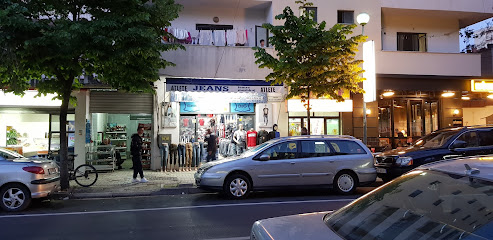
Dua by Elsa
Explore the vibrant fashion scene at Dua by Elsa, a premier clothing store in Durrës offering unique styles and quality garments.
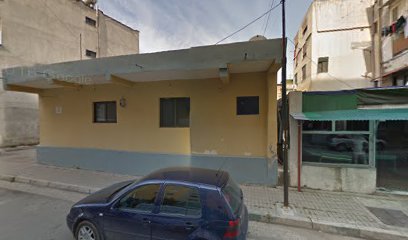
Boutique Firenze
Discover unique fashion and local artisan products at Boutique Firenze in Durrës, a must-visit destination for stylish souvenirs and gifts.
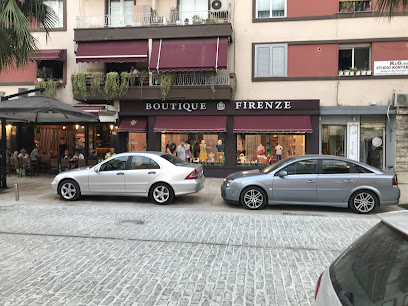
Buero Butik
Discover unique Albanian fashion at Buero Butik in Durrës, where style meets culture in a vibrant shopping experience.
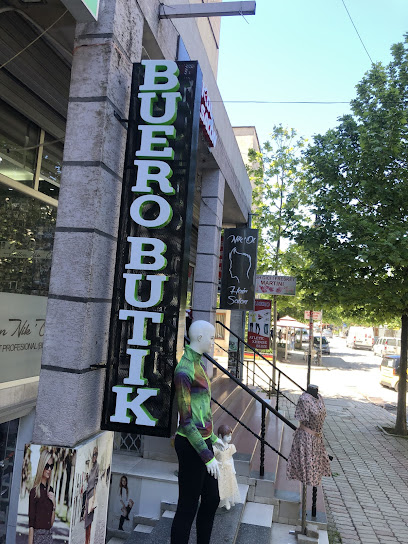
Diamond Boutique
Experience the elegance of Durrës at Diamond Boutique, where fashion meets quality in every stylish piece.
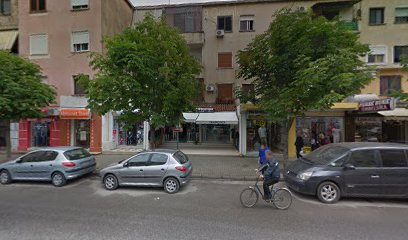
T - Shop
Explore the latest fashion trends at T-Shop, a stylish clothing store in Durrës, Albania, perfect for tourists and fashion enthusiasts alike.
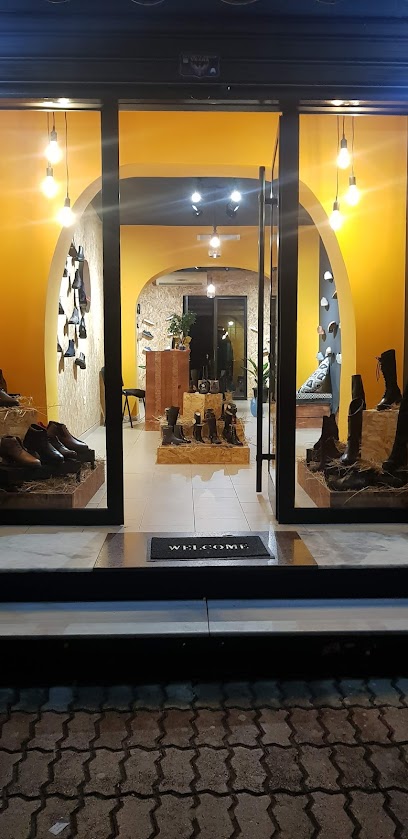
Info Shop Tobacco Durres
Explore a treasure trove of gifts and souvenirs at Info Shop Tobacco Durres, your go-to shop in Durrës for unique Albanian finds.
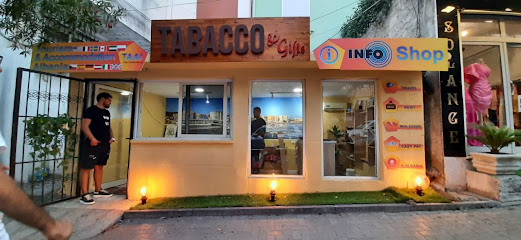
Durres Souvenir Gift Shop
Explore the charm of Durrës through local crafts and unique souvenirs at the Durres Souvenir Gift Shop, a must-visit for every traveler.
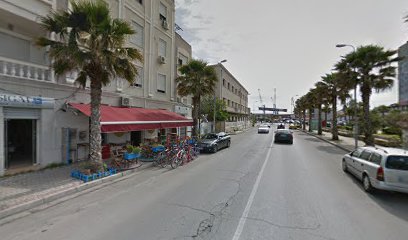
Dyqan_online Durrës
Discover unique Albanian crafts and souvenirs at Dyqan_online Durrës, a charming boutique that showcases local artistry and culture.
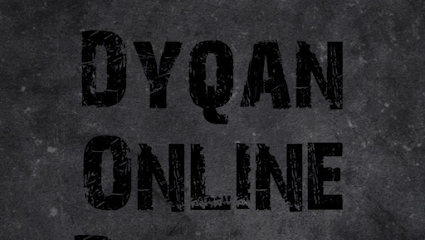
Essential bars & hidden hideouts
W Vollga Lounge
Discover the vibrant nightlife at W Vollga Lounge in Durrës, where modern elegance meets local charm in an unforgettable setting.
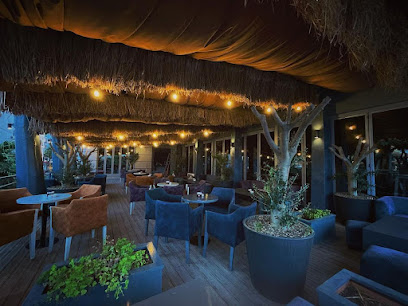
Portiku Wine Bar & Bistro
Experience the vibrant flavors of Durrës at Portiku Wine Bar & Bistro - a unique blend of traditional cuisine, fine wines, and live music.
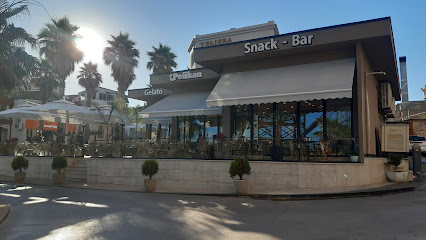
Illyrian Garden
Discover Illyrian Garden, a captivating cocktail bar in Durrës offering exquisite drinks and a vibrant atmosphere perfect for tourists.
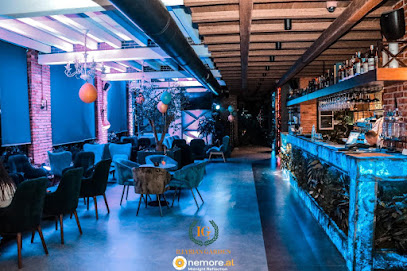
Posh Lounge
Discover the elegance of Posh Lounge in Durrës, Albania, where vibrant ambiance meets exceptional service and exquisite cocktails.
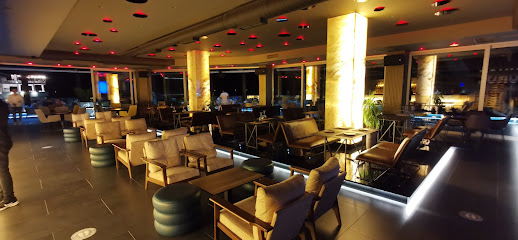
The Wall
Discover Durrës' vibrant nightlife at The Wall, where delightful drinks and a lively atmosphere await every visitor.
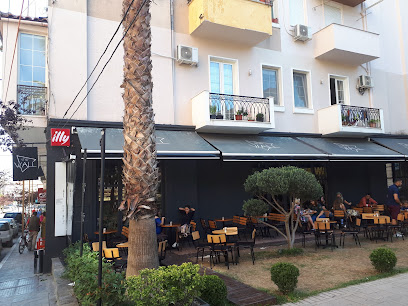
Vinum Wine Bar
Discover the finest wines and gourmet flavors at Vinum Wine Bar, a must-visit destination in Durrës, Albania.
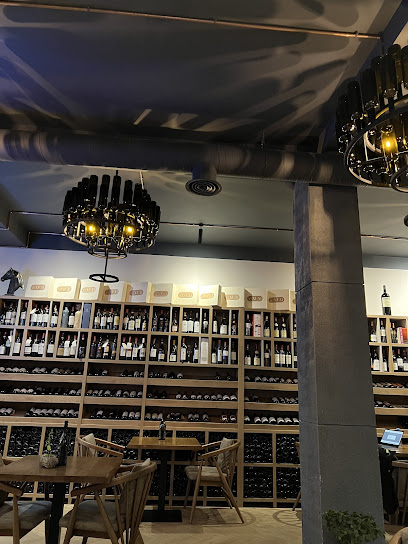
TRAIANO Lounge Bar Durres
Discover the best cocktails and live music at TRAIANO Lounge Bar, a vibrant nightlife hub in Durres, Albania.
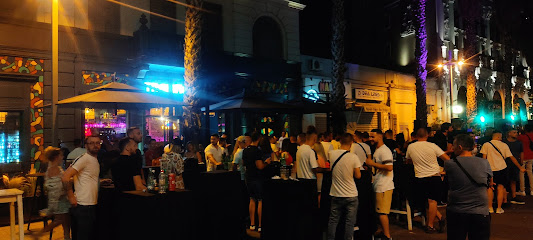
Zero Lounge Bar
Discover the lively Zero Lounge Bar in Durrës, where stunning ambiance meets exquisite cocktails and vibrant nightlife for an unforgettable experience.
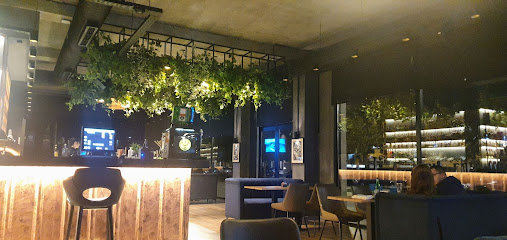
The Saloon
Experience the lively atmosphere and friendly service at The Saloon, Durrës' go-to bar for drinks and socializing.
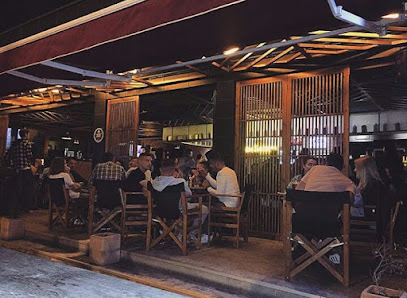
Oborri Lounge Bar
Discover the lively charm of Oborri Lounge Bar in Durrës—where great drinks and local vibes create unforgettable moments.
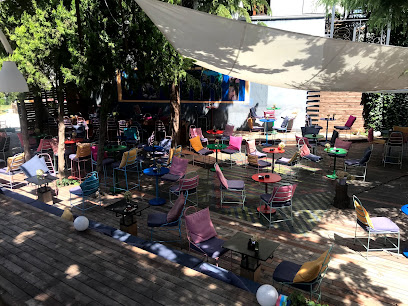
Bar Oslo
Discover the vibrant atmosphere of Bar Oslo in Durrës, where delightful drinks and a warm ambiance await you.
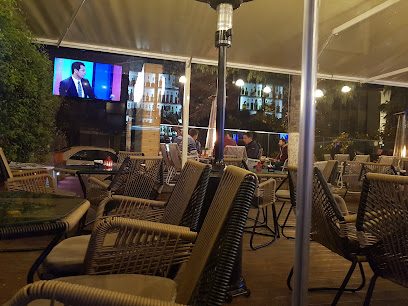
Kaiser Bar
Discover Kaiser Bar in Durrës: a scenic bar offering refreshing drinks, stunning views, and a vibrant atmosphere to enhance your travel experience.
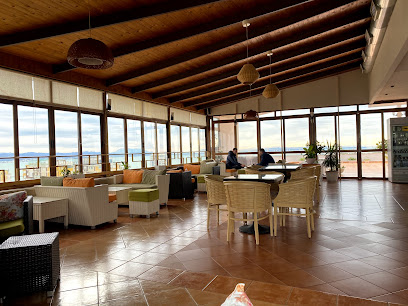
788 Cocktail Bar
Discover the vibrant nightlife of Durrës at 788 Cocktail Bar, where expertly crafted cocktails and a lively atmosphere await.
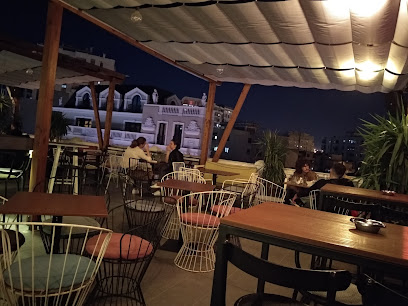
My Way Lounge Bar
Experience the vibrant nightlife at My Way Lounge Bar in Durrës, where refreshing drinks meet a lively atmosphere for unforgettable evenings.
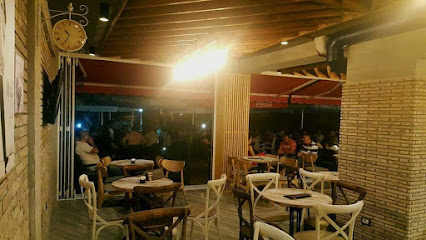
Local Phrases
-
- HelloPërshëndetje
[puhr-shuhn-deht-yeh] - GoodbyeMirupafshim
[mee-roo-pahf-shihm] - YesPo
[poh] - NoJo
[yoh] - Please/You're welcomeJu lutem
[yoo loot-ehm] - Thank youFaleminderit
[fah-leh-meen-deh-reet] - Excuse me/SorryMë falni
[muh fahl-nee] - How are you?Si jeni?
[see yeh-nee] - Fine. And you?Mirë. Dhe ju?
[mee-reh. dhe yoo] - Do you speak English?Flisni anglisht?
[flees-nee ahn-gleesht] - I don't understandNuk kuptoj
[nook koop-toy]
- HelloPërshëndetje
-
- I'd like to see the menu, pleaseDua të shoh menunë, ju lutem
[doo-ah tuh shoh meh-noo-neh, yoo loot-ehm] - I don't eat meatUnë nuk ha mish
[oo-neh nook hah meesh] - Cheers!Gëzuar!
[geh-zoo-ahr] - I would like to pay, pleaseDua të paguaj, ju lutem
[doo-ah tuh pah-gwahy, yoo loot-ehm]
- I'd like to see the menu, pleaseDua të shoh menunë, ju lutem
-
- Help!Ndihmë!
[ndee-muh] - Go away!Shko larg!
[shkoh lahr-g] - Call the Police!Thirr policinë!
[thihr poh-lee-tsee-nuh] - Call a doctor!Thirr një doktor!
[thihr nyeh dohk-tohr] - I'm lostJam humbur
[yahm hoom-boor] - I'm illJam i sëmurë
[yahm ee suhm-oo-reh]
- Help!Ndihmë!
-
- I'd like to buy...Dua të blej...
[doo-ah tuh bleh] - I'm just lookingPo shikoj vetëm
[poh shee-koy veh-tehm] - How much is it?Sa kushton?
[sah koo-shton] - That's too expensiveKjo është shumë e shtrenjtë
[kyoh uhshtuh shoo-muh eh shtreh-nyt] - Can you lower the price?A mund ta ulni çmimin?
[ah moon-d tah ool-nee chmee-meen]
- I'd like to buy...Dua të blej...
-
- What time is it?Sa është ora?
[sah uhshtuh oh-rah] - It's one o'clockËshtë një ora
[uhshtuh nyuh oh-rah] - Half past (10)Njëzet e gjysmë
[nyuh-zet eh gjoo-smuh] - MorningMëngjes
[muhn-gyes] - AfternoonPasdite
[pahs-dee-teh] - EveningMbrëmje
[mbruhm-yeh] - YesterdayDje
[dyeh] - TodaySot
[soht] - TomorrowNesër
[neh-sahr] - 1Një
[nyuh] - 2Dy
[duh] - 3Tre
[treh] - 4Katër
[kah-tuhr] - 5Pesë
[peh-seh] - 6Gjashtë
[gyahsh-tuh] - 7Shtatë
[shtah-tuh] - 8Tetë
[teh-tuh] - 9Nëntë
[nuhn-tuh] - 10Dhjetë
[th-yeh-tuh]
- What time is it?Sa është ora?
-
- Where's a/the...?Ku është një/të...?
[koo uhshtuh nyuh/teh] - What's the address?Cila është adresa?
[chee-lah uhshtuh ah-dreh-sah] - Can you show me (on the map)?A mund të më tregoni (në hartë)?
[ah moon-d tuh muh troh-ny, nuh hahr-tuh] - When's the next (bus)?Kur është autobusi tjetër?
[koor uhshtuh ah-oo-toh-boo-see tyeh-tehr] - A ticket (to ....)Një biletë (në ....)
[nyuh bee-leh-tuh, nuh]
- Where's a/the...?Ku është një/të...?
History of Durres
-
Durres, originally known as Epidamnos, was founded by Greek colonists from Corinth and Corcyra in 627 BC. The city quickly became an important trading hub due to its strategic location along the Adriatic Sea. It was known for its thriving commerce and bustling port, which facilitated trade between the Greeks, Illyrians, and other neighboring cultures.
-
In 229 BC, the city was conquered by the Romans and renamed Durrachium. It became a significant military and naval base, playing a crucial role in Roman campaigns in the Balkans. Durrachium was also the starting point of the Via Egnatia, an essential Roman road that connected the Adriatic coast to Byzantium (modern-day Istanbul).
-
During the Byzantine era, Durres remained a vital center of commerce and culture. The city was fortified with formidable walls to protect against invasions. It attracted scholars, artists, and merchants from across the Byzantine Empire, contributing to a rich cultural tapestry. The city's churches and mosaics from this period are testaments to its historical significance.
-
In the medieval period, Durres witnessed numerous conflicts and changes in power. It was contested by various empires, including the Bulgarians, Normans, and Byzantines. In 1392, the city came under Venetian control, marking the beginning of a period of relative stability and economic prosperity. The Venetians fortified the city further, leaving behind architectural legacies that can still be seen today.
-
Durres fell to the Ottoman Empire in 1501, becoming part of their vast realm for over four centuries. During this time, the city underwent significant changes in its architecture, culture, and demographics. The Ottomans built mosques, hammams, and bazaars, transforming Durres into a quintessential Ottoman city. Despite the challenges of the period, the city remained an important regional center.
-
With Albania's declaration of independence in 1912, Durres played a crucial role in the nation's early history. It briefly served as the capital of Albania and was a focal point for political and military activities. Throughout the 20th century, Durres underwent considerable modernization, developing its infrastructure, expanding its port, and becoming a vital industrial and economic hub in Albania.
-
In recent decades, Durres has experienced a cultural renaissance, with efforts to preserve and celebrate its rich heritage. The city has become a vibrant tourist destination, attracting visitors with its ancient ruins, beautiful beaches, and lively cultural scene. Significant archaeological discoveries, such as the Roman amphitheater and the Venetian tower, have further cemented Durres' status as a city of historical and cultural significance.
Durres Essentials
-
Durres is conveniently located along the Adriatic Sea and is accessible by various means of transportation. The nearest international airport is Tirana International Airport (TIA), approximately 33 kilometers away. From Tirana, you can take a taxi or a bus directly to Durres, which usually takes around 30-45 minutes. Ferries are also available from Italian ports such as Bari and Ancona, providing an alternative way to reach Durres by sea.
-
In Durres, taxis are widely available and relatively inexpensive. Public buses operate within the city and connect to nearby towns and villages. For a more local experience, consider taking a minibus (furgon), which is a popular mode of transport among locals. Renting a car can also be a good option if you plan to explore the surrounding areas at your own pace. Walking is another viable option for getting around the city, as many attractions are within close proximity.
-
The official currency in Albania is the Albanian Lek (ALL). Credit cards are accepted in most hotels, restaurants, and larger shops, but it's advisable to carry cash for smaller establishments and markets. ATMs are readily available throughout Durres, where you can withdraw local currency. It's a good idea to have some cash on hand for day-to-day expenses.
-
Durres is generally a safe city for tourists. However, like any travel destination, it is important to take standard precautions. Avoid walking alone at night in poorly lit or unfamiliar areas. Be cautious of pickpockets, especially in crowded places such as markets and public transportation hubs. While there are no specific high-crime areas targeting tourists, staying vigilant and aware of your surroundings is always recommended.
-
In case of emergency, dial 112 for immediate assistance. Durres has a local police station as well as medical facilities, including hospitals and clinics, to handle emergencies. It is highly recommended to have travel insurance that covers medical emergencies. Pharmacies are also available throughout the city for minor health issues and over-the-counter medications.
-
Fashion: Do dress modestly, especially when visiting religious sites. Avoid overly revealing clothing. Religion: Do respect local customs and traditions. When visiting religious sites, dress modestly and cover your head if required. Public Transport: Do be respectful and give up your seat to elderly passengers. Avoid eating or drinking on public transport. Greetings: Do greet people with a handshake. A friendly greeting in Albanian, such as 'Mirëdita' (Good day), is appreciated. Eating & Drinking: Do try local delicacies and accept food offerings graciously. Don’t refuse hospitality, as it is considered impolite.
-
To experience Durres like a local, visit the local markets where you can buy fresh produce and traditional Albanian goods. Engage with locals, who are often friendly and eager to share stories about their city’s history and culture. Don’t miss the Durres Amphitheatre and the Archaeological Museum for a deep dive into the city's rich history. For a unique experience, take a stroll along the Durres beach promenade, especially in the evening when it comes alive with local families and street vendors.
Trending Landmark in Durres
-
Durrës Amphitheatre
-
Venetian Tower of Durrës
-
Sfinksi
-
Muzeu Kombëtar Arkeologjik
-
The Great Mosque of Durrës
-
Muzeu i Dëshmorëve dhe Salla e Relikeve të Luftës
-
Town Square of Durrës - Sheshi Liria
-
Porto Romano
-
Rrota e Kuqe, Durrës
-
Durrës Beach
-
Byzantine Forum (Durrës)
-
Concrete Bunkers
-
Column monument
-
The southern gate of the Castle (Porta jugore e Kalasë)
-
Lighthouse
Nearby Cities to Durres
-
Things To Do in Kavajë
-
Things To Do in Tirana
-
Things To Do in Krujë
-
Things To Do in Lezhë
-
Things To Do in Ulcinj
-
Things To Do in Patos
-
Things To Do in Berat
-
Things To Do in Bar
-
Things To Do in Vlorë
-
Things To Do in Pogradec
-
Things To Do in Budva
-
Things To Do in Tepelenë
-
Things To Do in Podgorica
-
Things To Do in Bajram Curri
-
Things To Do in Cetinje











